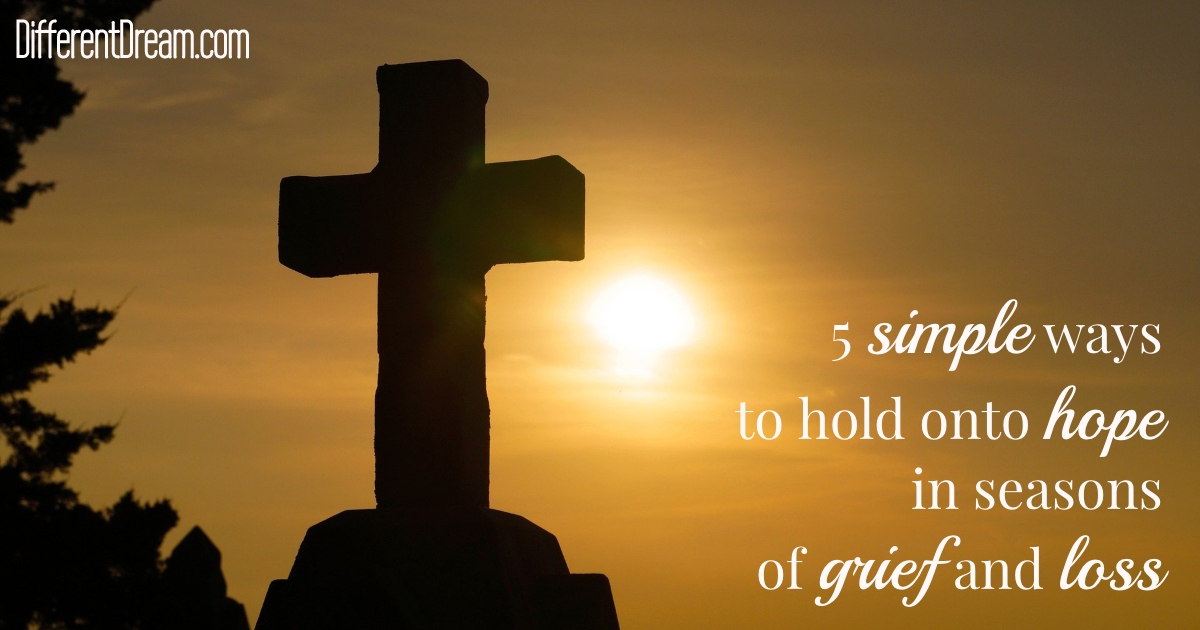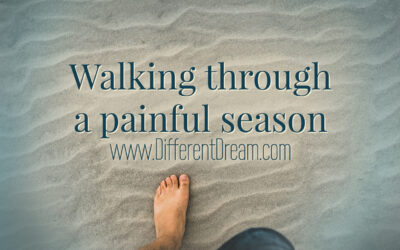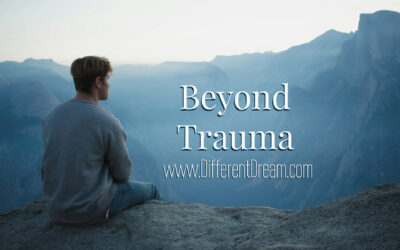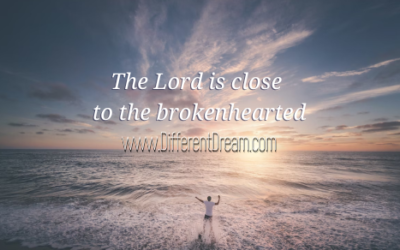Ways We Hold to Hope Through the Loss and Grief of Disabilities

Ways we hold to hope as we parent children with disabilities become stronger through practice. Guest blogger Heather Johnson writes about 4 ways she and her husband have learned to hold to hope even as they support their adult children.
In 1997, a 6-year-old girl stood on the threshold of the room where Todd and I sat waiting, hearts beating wild with anticipation. She wore a red velvet dress with matching bow in her brown hair. Next to her stood a boy wearing a pink Lion King sweatshirt. We learned he would turn 4 the next day.
A woman, gray haired pulled back in a bun, leaned low and whispered to Anna in Russian while pointing to me, “There’s your mama.”
Anna smiled wide and broke loose. She dashed across the massive oriental rug and jumped into my arms squealing, “Mama! Mama! I’ve waited so long for you!” I had no words other than, “I love you so much!” spoken in my newly learned Russian.
Sergei, whom we renamed Zachary, also ran across the room and hopped onto Todd’s lap. After a brief hug, Zach jumped back to the floor and began bouncing all around on a big red ball with a handle.
This was bliss.
The four of us left the Russian orphanage that day for a whole new life far, far away. Todd’s and my years of grieving infertility were over. Finally, we had a family. Finally, we had an opportunity, birthed through grief, to turn loss into new life.
In 1999, Todd and I returned to the same orphanage and brought Nicholas home with us. He was 19 months-old with chubby cheeks and towhead hair. He weighed only 15 pounds, couldn’t stand, couldn’t hold a sippy cup.
Within two years, Todd and I had heart-birthed three kids and became an over-the-moon, happy family of five. Shortly thereafter though, grief came knocking again, and again, and again—a most unwelcome and demanding intruder.
Discovering Disabilities
When our kids came into our lives, we didn’t know we were beginning a life-long journey through the often-scary territory of permanent disabilities. They all had the expected developmental delays, most dissipating with time and loving care. But we began noticing subtle signs of significant, persistent problems. We started seeking professional assessment.
Within our first three years as a family, all our kids received multiple diagnoses, all falling under the umbrella of Fetal Alcohol Spectrum Disorder (FASD).
(Click on the link and read the list of impairments, most of which affect all our kids, most of which are invisible.)
Every new diagnosis stretched us thin as we began juggling visits with 11 different specialists on a regular basis.
Living with Loss and Grief
Our family is far from bleak! We enjoy our lives together and are grateful for our many gifts, including close proximity. We play and laugh, hike and travel. Still, discovering our kids’ disabilities led us into close acquaintance with the common stages of grief.
We grieved when our kids grieved the impact of their invisible disabilities. Anna lamented aloud, “I wish I looked like I had Down Syndrome because then people could see I have disabilities.”
We grieved with all our kids when their peers passed them developmentally and faded away from their lives.
We grieved when we moved Anna into a group home because, even though we’re a forever family, our home can’t be her forever home. There’s that constant nag of our mortality.
Todd and I have spent much of our living thinking about our dying. We’ve made arrangements so all our kids will have their basic needs of food, shelter, and safety met, as well as financial management and continued therapies.
So here we are today. Anna, Zach, and Nick are now 29, 27, and 22. Todd’s 66. I’m 61.
We’ve all been through many turbulent times. We’ve been sad, mad, and scared. Sometimes, we still are. We’ve felt isolated. Sometimes we still do. I’ve asked myself too many times to count, “What if we’d done this? Or that?” Sometimes, I still wonder.
Growing through grief isn’t a linear progression. The stages are actually quite fluid. They’re a back-and-forth, up-and-down, swirling whirlpool of emotions that often take us by surprise because we think we’ve moved on from the neatly defined categories. But then they bubble up again, begin swirling again, threaten to pull us under again and again. But we keep going.
Ways We Hold to Hope
It’s necessary to grapple with loss and grief if we want to hold hope—to live and not just survive. Here are five constants that have helped us survive and thrive in our lives. I hope they might help you, too:
First, it’s okay, even good, to give yourself permission. Look at your losses/your kids’ losses and honestly assess how you feel. No sugar-coated, Christian platitudes. What bubbles up? Is there grief needing a voice, an ear, a heart, a shoulder? Trust your gut. Don’t judge or compare. Grieving losses is key.
Second, it’s ok, even good, to wrestle with God. Cry your grief. Scream your grief. Question. Voice your frustrations. Wrestling is connecting and we are hard-wired for connection. Staying connected with God is key.
Third, it’s okay, even good, to be vulnerable with others. True, being vulnerable might mean losing relationship. But don’t let those losses stop you from seeking caring connection. Seek and find those who can listen, empathize, encourage and can be vulnerable with you, as well. Being and staying connected with caring, vulnerable others is key.
Fourth, give thanks for something in everything, in everyone, every day, no matter the grief. Gratitude grounds us and elevates us, especially when grieving. Giving thanks is key.
Last and best, hold God to His promises. God’s promises are the keys to abundant life.
I gave this promise to all three of our kids before I knew all we’d go through.
“For I know the plans I have for you,” declares the Lord, “plans to prosper you and not to harm you, plans to give you hope and a future.” Jeremiah 29:11 NIV
Perhaps the greatest part of God’s promise to prosper us is to walk with us through desolation, being our consolation.
After all we’ve been through as a family, I’ve come to think there’s a holy healing when we come to the end of ourselves—when we finally find, after all our wrestling, the great gain inside every bit of loss in the ways we hold to hope.
Grief might just be the best gateway to glory.
Do you like what you see at DifferentDream.com? You can receive more great content by subscribing to the monthly Different Dream newsletter and signing up for the daily RSS feed delivered to your email inbox. You can sign up for the first in the pop up box and the second at the bottom of this page.
By Heather Johnson
Heather MacLaren Johnson and her husband have three kids, all five and under when adopted from Russia. Now 29, 27, and 22, all need regular help with their multiple, permanent, invisible disabilities stemming from prenatal exposure to alcohol (FASD).
Heather has B.S. in Education and a doctorate in Clinical Psychology. She is the author of Grace, Truth, & Time: Facilitating Small Groups That Thrive and has published personal essays in The Wonder Years: 40 Women Over 40 on Aging, Faith, Beauty, and Strength (Kregel Publications) and Your Story Matters: Finding, Writing, and Living the Truth of Your Life (NavPress). She’s writing a memoir about her family’s journey through hidden disabilities and mental illness to encourage others to greater intimacy with God and each other through times of desolation and lament.
Heather and her husband of 27 years live with two horses, two dogs, two barn cats, and a bunch of silk plants she just dusts. Heather writes and photographs at www.truelifewithgod.com.
11 Comments
Submit a Comment
Related Posts
The Physical Manifestations of Grief in Caregivers
Jolene explains how the heaviness of loss and sorrow can contribute to the physical manifestations of grief in caregivers.
Experiencing Post-Traumatic Growth while Raising a Child with Disabilities
Jolene explains the benefits of experiencing post-traumatic growth while raising a child with disabilities.
Mending Broken Hearts
Guest blogger Kelly Denham explains how, in the midst of her grief, God proves He is in the business of mending broken hearts.






Hi Rhonda–Thanks for reading and responding. I love your two quotes: “God’s goodness can be seen in our grieving” and “God in his goodness gave us hope”. Indeed, God is our living hope!
Hi Diane–Thanks for reading and commenting. I’ve never believed the saying, “God never gives us more than we can handle.” In fact, God often gives us more than we can handle. Doing so is a grace because it’s an invitation to connect with God intimately. There’s perfect peace in knowing and following our Good Shepherd, Jesus, especially in the midst of life’s greatest storms.
Hi Myrna–Thanks for commenting and telling me a bit about yourself and your son. I’m glad you’re staying connecting with God and know that, no matter what, you never walk alone. Feel free to reach out to me on my website.
Heather, you are so brave, yet I know it is always day to day with Jesus. The American way is to think we can handle things that are beyond us. But God knows, and gives us grace. Thank you for those key thoughts.
Hi Myrna–Thank you for reading and commenting. I always appreciate meeting others who have lived/are living what I write about. Thank you for saying that living with invisible disabilities is very hard. I’m thankful to hear you’re drawing closer to God and feeling comfort in knowing that you’re never alone. Feel free to contact me any time. We need to stick together and inspire one another to keep going and keep holding onto hope, especially in the hardest times.
Lorri–Thanks for your kind comment.
Martha–Thank you for reading and commenting! I’m thrilled you “heard victory” in this piece. I’m thankful for God’s constant provision and even more thankful that all our kids know and love Jesus.
You expressed your heart so well! Thank you for sharing your journey. God’s goodness can be seen in our grieving. He gave his son – oh the grief God felt, the grief Jesus experienced seeing our sinfulness; yet, in all of this God in His goodness gave us hope. Love you
I heard victory instead of loss as I read this story! You know that Jesus is standing with you through all of this, and the sweet part is that your whole family is standing with their Redeemer, Jesus Christ!
A gifted writer with amazing insights born of determination, experience, and love.
Thanks for offering your supportive candor for patents whose children have disabilities. The invisible disabilities are very hard. I also have an adopted son from Russia with likely FASD impact. He was 8 when adopted so there’s also much impact from emotional and physical trauma. Also causing invisible disability. I am working on my relationship with God. It’s comforting to know we are never alone.